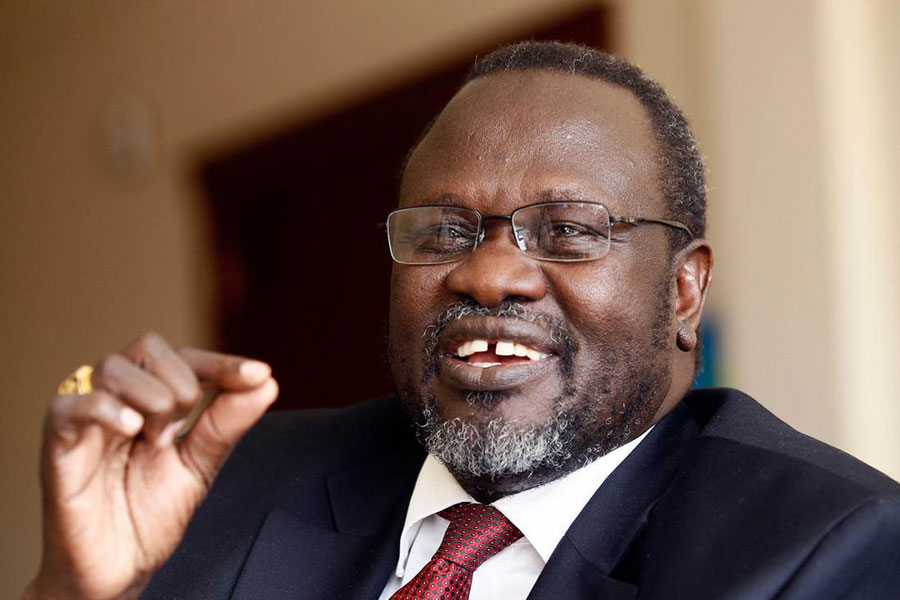South Sudan‘s opposition leader, Riek Machar, has yet to return to his country but has recently been traced to the Democratic Republic of Congo where he reportedly sought refuge with his wife along with 100 other people.
The former First Vice-President of the world’s newest country was last seen by the public in July, following a reported failed assassination attempt against him. This attempt came during the period of violence that occurred that same month between government and opposition supporters that threatened the negotiated ceasefire of August 2015.


Machar’s escape from the country witnessed his removal as First Vice-President, a position currently occupied by another official of the Sudan People’s Liberation Movement-in-Opposition (SPLM-IO) and mining minister, Taban Deng Gai. This appointment raised fears of a crumbling peace agreement between the two sides due to many in support of Machar not accepting the change. A spokesperson for the SPLM-IO, Mabior Garang, told the Associated Press that the decision to replace Machar was “illegal” and some of those who nominated Deng Gai were “coerced by security officials.”
Nevertheless, Deng Gai stated before the heads of state and government summit in Addis Ababa, Ethiopia, that he would step down upon Machar’s return. In the meantime, the new First Vice-President is performing his duties in Nairobi, Kenya, as part of the South Sudanese delegation discussing the implementation of the Intergovernmental Authority on Development (IGAD) brokered the peace agreement.
The United Nations in South Sudan
The UN Security Council agreed to deploy 4 000 additional peacekeepers to South Sudan with a fortified mandate to provide security in an attempt to honor the peace deal made one year ago. Although Machar called for the support, President Salva Kiir’s government rejected the decision saying that it threatened the country’s sovereignty. He reportedly stated he would allow the troops to enter the country once the details of their mission had been finalized. Notwithstanding, the United Nations managed to increase their presence in the country making their number of peacekeepers and police be more than 12 000.
Simultaneously, there has been a great wave of criticism against the UN for failure to adequately protect citizens during July’s violent outbreaks. On Tuesday, 16 August, United Nations Secretary-General Ban Ki-Moon ordered an investigation into reports of peacekeepers who did not act accordingly when informed of an attack on a hotel by men in military uniform where a journalist was killed, and several women raped. Furthermore, there have been many reports of sexual violence perpetrated by soldiers in government uniforms against women who went outside the camps to collect food while UN peacekeepers stood by.
This is not the first time the United Nations are being accused of inadequate protection of civilians. At a conference at UN Headquarters, New York, in January this year, allegations of child sexual abuse against UN peacekeepers in the Central African Republic surfaced. Among the UN perpetrators are troops from France, Bangladesh, Morocco, Niger, Senegal, the Democratic Republic of Congo and the European Union.
Source: Financial Times

